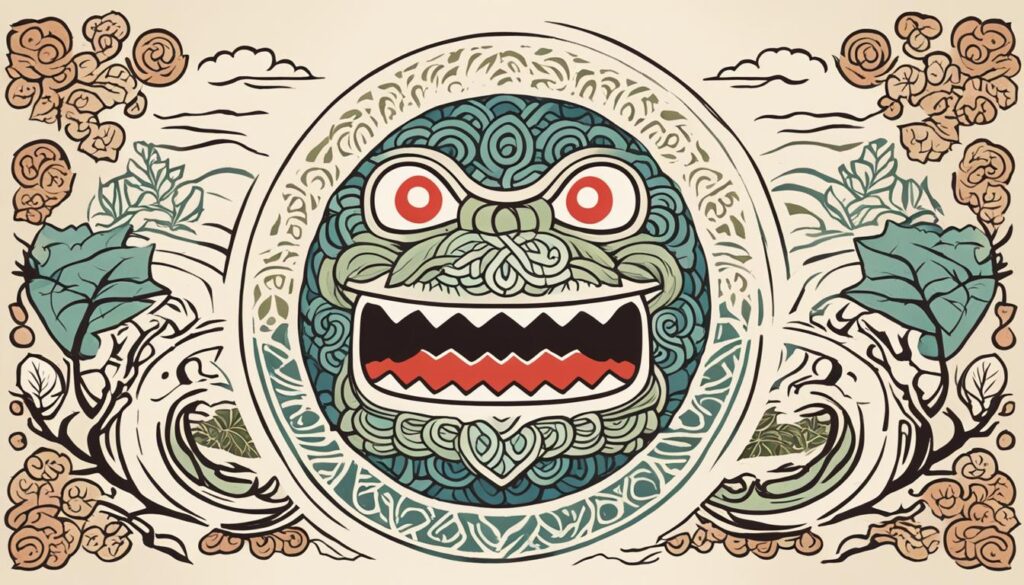In Japanese, the word “domo” carries nuanced meanings depending on the context. It is often used as a shorter form of the phrase “Arigato” (meaning “Thanks”) and is commonly used to express appreciation in restaurants or other social situations. The word can also be used to greet someone when arriving or leaving. However, “domo” can also be used to sincerely apologize to someone and can have a negative connotation in that context. It is commonly used when bumping into someone by accident or when wanting to express deep remorse. Additionally, in Japanese culture, “domo” is associated with the popular mascot character “Domo-kun” created by Japan’s public broadcast, NHK.
Understanding the true meaning and usage of “domo” adds depth to one’s knowledge of the Japanese language and culture. By exploring its various meanings, pronunciation, and cultural significance, you can grasp the richness and versatility of the word “domo” in Japanese.
The Various Meanings of Domo
In Japanese, the word “domo” carries different meanings depending on the context. It serves as a versatile expression and can be used in various ways.
First and foremost, “domo” can be used as a casual form of thanks or appreciation, similar to saying “Thanks” in English. It is a friendly and informal way to express gratitude.
Additionally, “domo” can serve as a greeting when arriving or leaving. It can be used as a substitute for “hello” or “goodbye,” creating a warm and friendly atmosphere in social interactions.
Furthermore, “domo” can be used to express sincere apologies. It is equivalent to saying “sorry” in English and can convey a sense of remorse or regret. However, it’s important to note that using “domo” to apologize can sometimes carry a negative connotation. It is typically used when apologizing to someone of higher status or a stranger.
Overall, “domo” in Japanese encompasses a range of meanings, from gratitude to greetings and apologies. Its versatility and cultural significance make it an essential part of the Japanese language.
The Cultural Significance of Domo in Japan

Domo holds a significant place in Japanese culture and is closely associated with the beloved mascot character “Domo-kun.” In Japan, mascots are created to represent various companies and regions, and Domo-kun is one of the most recognizable mascots. Created by Japan’s public broadcast, NHK, Domo-kun has captured the hearts of people across the country.
The concept of Domo-kun originated from the greetings used in Japanese morning television programs. The character’s design, with its rectangular body, large mouth, and expressive eyes, has become iconic in Japanese pop culture. Domo-kun embodies both an endearing and mischievous nature, which resonates with people of all ages.
As a mascot, Domo-kun symbolizes more than just a cute and lovable character. It represents the spirit and values of Japanese society, including resilience, curiosity, and a sense of humor. Domo-kun’s cultural importance extends beyond its role as a mascot; it has become a recognizable symbol of Japanese popular culture.
| Significance of Domo in Japanese Society | Mascots in Japan |
|---|---|
| 1. Cultural Icon: Domo-kun represents Japan’s creative and imaginative spirit, showcasing the country’s vibrant pop culture. | 1. Representation: Mascots play a crucial role in representing companies, events, and even local communities in Japan. |
| 2. Emotional Connection: Domo-kun’s distinctive appearance and mischievous personality have endeared it to people across generations. | 2. Popularity: Mascots are immensely popular in Japan, with numerous merchandising opportunities and fan followings. |
| 3. Cultural Pride: Domo-kun reflects the unique aspects of Japanese culture, fostering a sense of national pride. | 3. Promotional Tool: Mascots serve as effective promotional tools, attracting attention and fostering engagement. |
Pronunciation and Usage of Domo
When it comes to pronouncing “domo” in Japanese, the correct pronunciation is “Dou-mo.” This simple word holds various uses in the Japanese language and is commonly employed in casual conversations to express thanks, greetings, or apologies. Understanding how to use “domo” appropriately in different social situations is essential to navigate Japanese interactions effectively.
In casual settings, “domo” can be used to express gratitude, similar to saying “thanks” in English. For instance, if someone offers you a helping hand, you can respond with a casual “domo” to show your appreciation. Additionally, “domo” can be used as a substitute for both greetings and farewells, similar to saying “hello” or “goodbye.” For example, when entering a friend’s house, you can greet them with a friendly “domo.” Similarly, when leaving a social gathering, you can bid farewell with a casual “domo.”
However, it’s important to recognize that using “domo” to apologize can carry a negative connotation. It is typically used when apologizing to someone of higher status or to strangers. In such cases, it is advisable to use the complete phrases “Domo arigato” or “Domo sumimasen” to express gratitude or apologize in a more formal or polite manner.
To better understand the usage of “domo” in Japanese, let’s take a look at the table below:
| Usage | Meaning |
|---|---|
| Casual Appreciation | Expressing thanks in a casual manner |
| Casual Greeting | Using “domo” as a substitute for hello or goodbye in informal situations |
| Casual Apology | Apologizing with “domo” in a casual context, often used with higher-status individuals or strangers |
Conclusion
In summary, “domo” is a versatile word in Japanese that holds various meanings depending on the context. It serves as a casual form of expressing gratitude, greetings, or apologies in everyday conversations. Unlike the more formal phrase “Arigato,” “domo” is commonly used in social situations to convey appreciation. Additionally, it can be used as a substitute for “hello” or “goodbye” when interacting with others.
The significance of “domo” extends beyond its linguistic usage, as it is associated with the beloved mascot character, Domo-kun. Created by NHK, Japan’s public broadcast, Domo-kun has become an iconic figure in Japanese culture. Through this association, “domo” exemplifies the cultural importance of mascots and their ability to symbolize various aspects of society.
Understanding the true meaning and proper usage of “domo” provides insight into the intricacies of the Japanese language and culture. Whether expressing gratitude, exchanging greetings, or offering apologies, incorporating “domo” into your vocabulary enhances your understanding and appreciation of Japanese customs and traditions.

